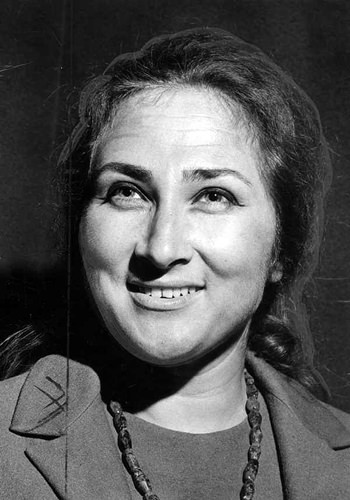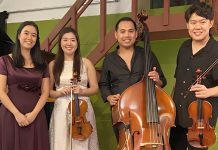
Do you enjoy singing? If you do, you might be saddened – or horrified – to know that half the teenage boys in Britain claim that they never sing a note, not even in the privacy of their own homes. Girls do slightly better, but not much. That’s according to a recent study in the UK which revealed that most children simply don’t sing. Since the 1970s, there has been a general decline in school singing in Britain, which is a bit ironic because most teenagers usually enjoy listening to popular songs.
The first music ever to be heard on this planet was almost certainly made by the human voice. At some point our evolution, perhaps even before recogniseable speech began to develop, people found that they could make sounds with their voices that were melodious – at least by their standards. We’ll probably never know who sang the first songs or even what they sounded like, but the song has remained a central feature of Western music. Wikipedia defines a song as a piece of music “typically intended to be sung… with distinct and fixed pitches and patterns using sound and silence and a variety of forms that often include the repetition of sections.” You might need to read that bit again. In recent years the word “song” has become frequently and irritatingly misused by the musically-challenged to describe any kind of composition, even symphonies.
Several theories have been advanced to explain the decline in singing, but the good news is that there are many new initiatives to promote singing in schools and communities. Research involving ten thousand children in the UK revealed that singing in school can “make children feel more positive and build a sense of community”. A study by London University’s Institute of Education found a clear link between singing and well-being. Schools with singing on the curriculum have invariably reported positive overall results. This news will come as no surprise to those who enjoy singing. Being an optimist at heart, I think the decline is just a temporary phase. It will pass eventually. Believe me.
Songs have always been an integral part of opera. This is one of the best-known songs, (or arias as they’re usually called) from the composer’s ninth opera entitled Rusalka, a three-act work first performed in 1901. In Slavic mythology, a rusalka is a water nymph which inhabits lakes and rivers. In the story, Rusalka has fallen in love with a human prince who hunts near the lake, presumably for wild animals rather than water nymphs. In a melancholy mood, Rusalka asks the moon to tell the prince of her love. A rather pointless request you might think, but in the world of opera almost anything goes.
The aria has become a popular stand-alone concert piece and this recording was made at London’s Proms with the superb American soprano Renée Fleming, who gives a moving and beautifully-phrased performance with an impassioned and powerful climax.
If you were to drive south from Paris down the busy A10 and A71, you’d eventually arrive in the peaceful region known as the Auvergne. It’s a place of hills, forests, rivers and mountains the highest of which are over 7,000 feet. In these parts, life moves slowly. It was here that Joseph Canteloube was born into a family with deep roots in the Auvergne. He was fluent in Occitan, the local language known in French as langue d’oc. His Songs from the Auvergne is a collection of folk-songs for voice and orchestra and written between 1924 and 1955 with the lyrics in Occitan.
The notion of songs for voice and orchestra was not particularly new. During the late nineteenth century, several composers used this format, notably Gustav Mahler and Richard Strauss. There are five sets of songs, each consisting of between six and eight separate numbers. The best-known of the songs is the beautiful Baïlèro (“The Shepherd’s Song”) a lament of love and yearning. These are not merely folk-song arrangements. Instead, Canteloube has taken the simple folk melodies and placed them in his own unique sound-world with its lush harmonies and colourful orchestration.
There are several splendid recordings on YouTube including one by Victoria de los Angeles, but to my mind this 1963 Vanguard recording by the late Ukrainian soprano Netania Davrath is probably the most compelling you’re likely to find. The recording is accompanied by a selection of well-chosen paintings on the theme of shepherds and shepherdesses. And you might be pleased to know that the webpage contains a translation of the lyrics, especially if your Occitan is a bit rusty these days.
 |
 |
 |





